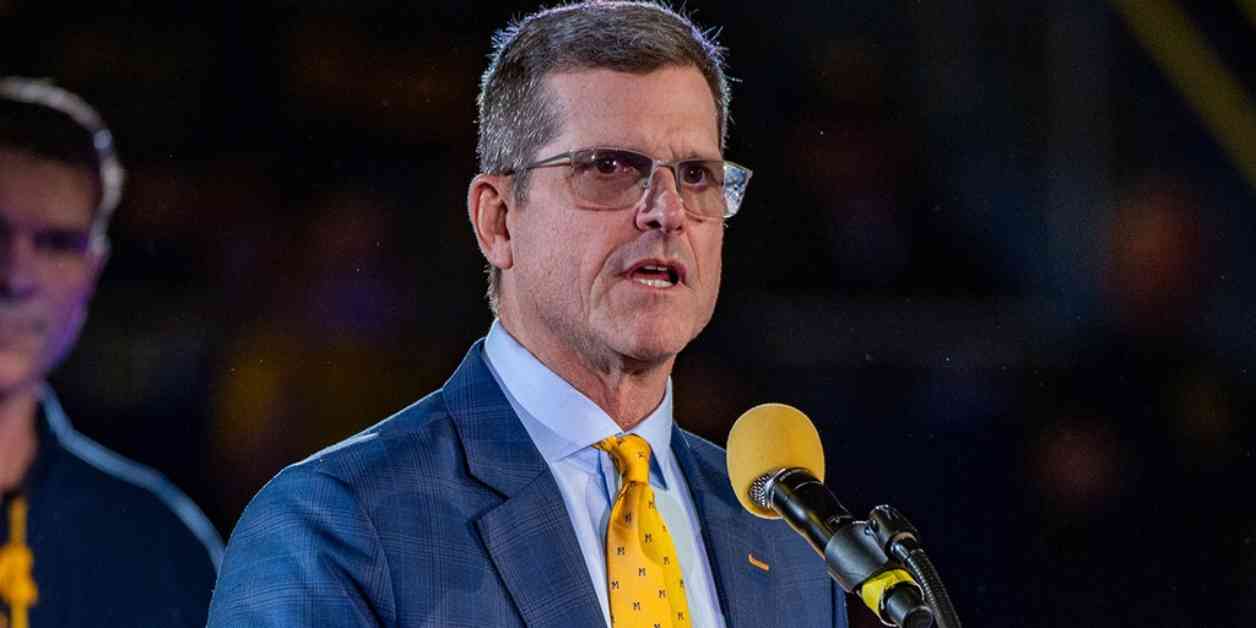Former Michigan football coach Jim Harbaugh faced serious consequences on Wednesday when the NCAA discovered that he had violated recruiting rules. The NCAA imposed a four-year show-cause order on Harbaugh after determining that he had inappropriate contact with recruits and players during a restricted period due to COVID-19. They found that Harbaugh had engaged in unethical behavior, failed to ensure compliance, and violated his responsibilities as head coach.
As a result of this ruling, Harbaugh will not be able to coach at the college level for the next four years. He may be eligible for reinstatement in August 2028. This decision comes after Harbaugh led the Wolverines to the College Football Playoff national championship in January and then became the head coach of the Los Angeles Chargers shortly after.
Michigan had already faced penalties, including probation and fines, related to the recruiting violations. Additional restrictions were placed on the football program, but Harbaugh chose to dispute the allegations rather than comply with the imposed penalties. The NCAA classified Harbaugh’s case as Level I-Aggravated, which led to a four-year show-cause order and a one-season suspension.
While Harbaugh has transitioned to coaching in the NFL, the NCAA’s penalty requires any university hiring him to suspend him for a full season. Even after this initial suspension, Harbaugh will still be restricted from participating in athletics-related activities until the show-cause order expires. His attorney, Tom Mars, claimed that Harbaugh was not involved in the settlement process with the NCAA and was unaware of the agreement reached between the school and the organization.
In the aftermath of Harbaugh’s case, the focus has shifted to Michigan’s new head coach, Sherrone Moore. Moore is facing allegations related to the sign-stealing investigation that has plagued the program. He is accused of deleting text messages with an individual central to the off-campus scouting operation under scrutiny. The individual in question, Connor Stalions, is set to break his silence in a Netflix documentary called “Sign Stealer,” scheduled to air on August 27.
Despite the allegations and penalties, Harbaugh remains defiant, stating that he does not apologize for his actions. He maintains that he was not involved in the sign-stealing scandal and was unaware of any wrongdoing. The NCAA’s decision on Harbaugh’s recruiting infractions spans 48 pages and sheds light on the severity of the case.
As the fallout from this scandal continues to unfold, it serves as a stark reminder of the consequences of violating NCAA rules and the importance of upholding integrity in college sports. The impact of these violations extends beyond individual coaches and programs, affecting the reputation and credibility of collegiate athletics as a whole.


